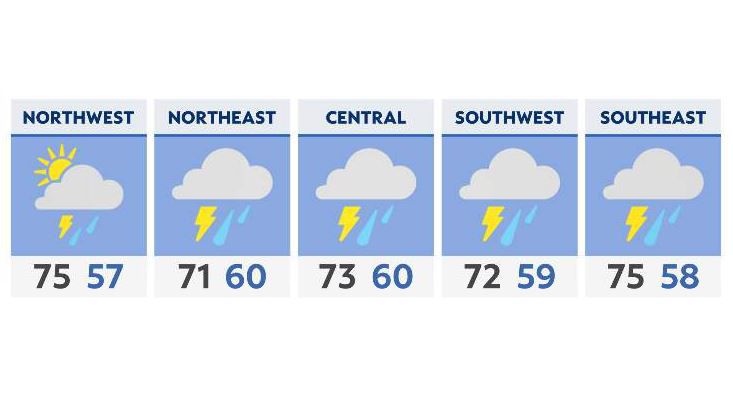WASHINGTON, D.C. — Republican Jane Timken has spent the last month of her U.S. Senate campaign in Ohio on a statewide listening tour focused on something called “critical race theory.”
What You Need To Know
- Republicans in Ohio are fueling a debate about critical race theory
- Experts said their interpretations are inaccurate
- Lawmakers in at least 18 states have introduced legislation to ban critical race theory
- One political analyst said it follows a trend set by former President Trump
“We can always have a dialogue about racism,” Timken said in a recent interview with Spectrum News. “I think it’s an important part of the history process, but I don’t think it should be the entire focus of our education system.”
There’s a growing push by Republicans across the country to limit how race and racism are taught in schools, and Ohio has become a prime example of it.
In addition to Timken, some of her Senate rivals are also talking about critical race theory.
Josh Mandel called it “a cancer in our society” in a recent tweet.
Critical race theory is a cancer in our society. We must raise up our kids to be proud of our heritage & who we are as Americans. This type of pc corporate garbage must be eradicated from our schools, businesses & all America. @drkarlynb @ryangirdusky @jackposobiec @raheemkassam https://t.co/Scn3jGJW2u
— Josh Mandel (@JoshMandelOhio) February 20, 2021
Author J.D. Vance, who’s exploring his own Senate run, tweeted that critical race theory “makes you dismiss and ignore your fellow citizens, all because they have the wrong skin color.”
The assumption that people have “already eaten” and are “full” based on the color of their skin is just totally evil. This is what critical race theory does to your mind: makes you dismiss and ignore your fellow citizens, all because they have the wrong skin color. https://t.co/s7n6qfFjgw
— J.D. Vance (@JDVance1) May 24, 2021
Vincent Wong, a scholar with the social justice think tank the African American Policy Forum, dismisses such criticism.
Wong said politicians are widely misrepresenting what critical race theory is all about and overstating its use in schools.
“Critical race theory, at its core, is just a discipline that seeks to understand how racism has shaped U.S. laws and how those laws have continued impacts,” Wong told Spectrum News.
Critical race theory exploded as an issue among Republicans last fall, following a summer of protests over racial injustice in policing and a Fox News interview that got former President Donald Trump’s attention.
Last September, a conservative activist appeared on Tucker Carlson’s program and called on Trump to stop racial sensitivity training in the federal government.
A few days later, Trump signed an executive order doing just that.
“Critical race theory is a Marxist doctrine that rejects the vision of Martin Luther King, Jr.,” Trump claimed during a campaign rally.
For all the attention critical race theory is getting, many academics like Wong said they see little evidence it is actually being taught in K-12 schools; it’s instead an academic debate that usually takes place in college and university settings, Wong said.
But Wong said he fears the push to demonize critical race theory will stifle meaningful discussions in the classroom about racism, its causes and how it can affect people of color.
“This is a way in which one can constrain discussions of those lingering issues of systemic racism, inequality in American society, but by doing so in a way that’s saying, hold on, this is actually a threat to American national security, it’s a threat to your children,” Wong said.
Ohio is one of at least 18 states controlled by Republicans where lawmakers have introduced legislation to ban critical race theory, according to the African American Policy Forum’s #TruthBeTold Campaign.
In Washington, at least 30 House members have gotten behind similar federal legislation.
Kyle Kondik, an Ohio native who is a political analyst and managing editor for Sabato’s Crystal Ball, said he sees these efforts as part of a broader political trend.
“I think Republican candidates feel like they do need to talk about kind of cultural issues, figuring out ways to differentiate themselves from the left, essentially to troll the left, which I think was something that Trump certainly is and was known for,” Kondik told Spectrum News.
He added that such cultural issues can push away some moderate voters, but they appear to motivate conservative voters even more.
“That’s a tradeoff that I think has worked for Republicans in Ohio,” Kondik said. “They have lost some support in the suburbs, but they’ve more than made up for it through gains amongst moderate to conservative, white rural small town voters, particularly in eastern Ohio, who used to be more open to voting for Democrats than they are now.”
Kondik said it’s unclear how long-lasting critical race theory will be part of the political landscape, but it’s the hot button issue in the GOP right now.
Timken, for one, said she will continue to talk about it.
“It’s really, to me, an issue about the future of our country,” Timken said.




